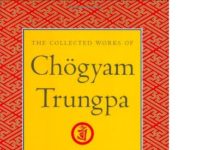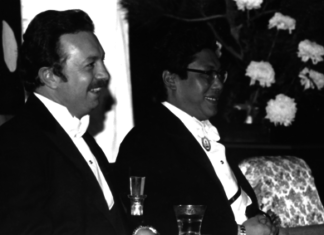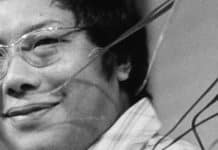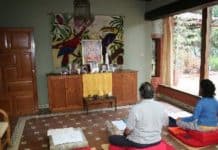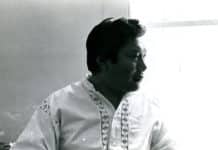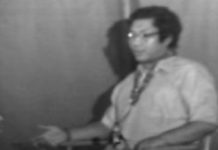On Chögyam Trungpa
Chögyam Trungpa Rinpoche is the quintessential spiritual guide. His teachings—steeped in ancient tradition and presented with relaxed fluency in western language and culture—are profound, accessible, and fresh. In addition to the buddhadharma, he offered the secular path of Shambhala, cultivating an appreciation of inherent bravery, dignity and goodness beyond cultural and religious bounds. Through his many books, Trungpa Rinpoche continues to be an incomparable source of wisdom and courage in the world. The Chronicles is an ongoing celebration of his profound teachings and life example.
Copyright Diana J. Mukpo. Used here by arrangement with Diana J. Mukpo and Shambhala Publications, Inc.
These teachings by Chögyam Trungpa are selected at random from Ocean of Dharma Quotes of the Week: the email service that brings Trungpa Rinpoche’s dharma to your inbox several times each week. For more information, or to add your name to the list, visit OceanofDharma.com.
Ocean of Dharma Quotes of the Week is edited and produced by Carolyn Rose Gimian. Thank you to Lady Diana Mukpo, Mrs. Gimian, and Shambhala Publications for making these teachings available on the Chronicles.
The Heart of the Warrior
When we bring together the ancient spiritual traditions of the West with those of the Orient, we find a meeting point where the warrior tradition can be experienced and realized. The concept of being a warrior is applicable to the most basic situations in our lives–to the fundamental situation that exists before the notion of good or bad ever occurs. The term warrior relates to the basic situation of being a human being. The heart of the warrior is this basic aliveness or basic goodness. Such fearless goodness is free from doubt and overcomes any perverted attitudes toward reality.






